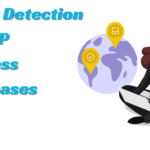6 Game-Changing Tools for the Sustainable Business of Tomorrow
- 1 Top 6 Game-Changing Tools for the Sustainable Business
- 1.1 Green Cloud Computing
- 1.2 Sustainable Supply Chain Magic
- 1.3 Remote Work Innovations
- 1.4 Crafting the Future Workspace
- 1.5 Blockchain for Transparency
- 1.6 The Rise of Smart Energy Systems
- 1.7 Embracing the Tech-Led Sustainability Movement
- 2 Conclusion:
- 2.1 FAQs:
- 2.1.1 How does green cloud computing reduce energy consumption?
- 2.1.2 What role does blockchain play in sustainability?
- 2.1.3 Why are smart energy systems essential for sustainable businesses?
- 2.1.4 How do remote work technologies contribute to sustainability?
- 2.1.5 What benefits does AI-driven supply chain optimization offer?
- 2.1.6 How can office space management software promote sustainability?
In Short:
- Green Cloud Computing: Transitioning to cloud-based services reduces energy consumption, costs, and environmental impact, especially when hosted on platforms powered by renewable energy sources.
- AI-driven Supply Chain Optimization: Leveraging AI for supply chain management minimizes waste, enhances efficiency, and aligns production with consumer demand, ultimately reducing environmental impact.
- Remote Work Technologies: Embracing remote work tools boosts operational flexibility and productivity and reduces carbon emissions associated with commuting and office space.
Today, where digital transformation intersects with the urgent call for sustainability, businesses are scouting for innovative technologies that bolster their bottom line and green credentials. As the world leans into a more environmentally conscious mindset, the tech landscape is burgeoning with solutions that promise efficiency, sustainability, and a lesser carbon footprint. From deploying AI to streamline operations to leveraging cloud-based platforms for reducing IT emissions, the narrative is clear: the future is digital and green. Keep reading to discover the trending tech and software that sustainable businesses should adopt to stay competitive and conscientious in today’s rapidly evolving market.
Top 6 Game-Changing Tools for the Sustainable Business
Green Cloud Computing
The move to the cloud has been revolutionary, offering scalability, flexibility, and, most importantly, a pathway to reduced energy consumption. Businesses can lower their on-site data centre requirements by transitioning to cloud-based services, significantly reducing energy usage and costs. This shift supports operational efficiency and aligns to minimize environmental impact. Green cloud computing platforms are designed to optimize energy use and are often hosted in data centres powered by renewable energy sources, making them an ideal choice for businesses aiming to reduce their carbon footprint.
Sustainable Supply Chain Magic
Optimizing the supply chain is a critical step in the quest for sustainability. Artificial intelligence (AI) is at the forefront of transforming how businesses predict demand, manage resources, and minimize waste. AI algorithms can analyze vast amounts of data to forecast trends, enabling companies to adjust their production schedules and inventory levels precisely. This ensures businesses can meet consumer demand without overproduction, significantly reducing waste and inefficiency. Here, inventory management software becomes a crucial tool, leveraging AI to provide real-time insights into stock levels, supplier performance, and logistics, helping businesses to make informed decisions that align with their sustainability goals.
Remote Work Innovations
The rise of remote work has heralded a new era in operational flexibility and environmental sustainability. Technologies facilitating remote work, such as collaborative online platforms and communication tools, have proven essential for maintaining productivity and connectivity in dispersed teams. These solutions reduce the need for physical office space and decrease the carbon emissions associated with daily commutes. Businesses can reduce traffic congestion and pollution by embracing remote work technologies, underscoring their commitment to a more sustainable future.
Crafting the Future Workspace
The concept of the office space is being reimagined. Managing physical office environments efficiently has never been more important in pursuing sustainability and team member wellbeing. Office space management software emerges as a pivotal technology in this transformation. It enables businesses to optimize their use of space, energy, and resources. These platforms can help companies reduce wasted space and energy consumption by analyzing usage patterns, leading to a more sustainable and cost-effective operation. Whether regulating lighting and heating based on occupancy or redesigning layouts to accommodate hybrid work models, these tools are crucial in creating environmentally friendly and productive work environments. Here’s where office space management software stands out, offering a path to a more sustainable, adaptable, and employee-centric workplace.
Blockchain for Transparency
The adoption of blockchain technology offers a groundbreaking approach to enhancing transparency and accountability in business operations. By facilitating secure, transparent transactions and record-keeping, blockchain verifiably enables businesses to demonstrate their sustainability credentials. This technology is particularly transformative in supply chain management, where it can track the provenance of goods, ensuring they meet ethical and environmental standards. For sustainable businesses, blockchain is not just a tool for operational efficiency; it’s a means to build trust with consumers and stakeholders increasingly demanding transparency and responsibility from the brands they support.
The Rise of Smart Energy Systems
At the heart of sustainable business practices lies the critical issue of energy management. Smart energy systems integrate IoT (Internet of Things) technologies and offer an advanced solution for monitoring and optimizing energy consumption. These systems allow businesses to gain real-time insights into their energy usage patterns, identify inefficiencies, and automate controls to ensure energy is used as effectively as possible. Smart energy technologies can significantly reduce power consumption, costs, and environmental impact, from smart thermostats to advanced analytics platforms.
Embracing the Tech-Led Sustainability Movement
As we venture into the future, the intersection of technology and sustainability is becoming increasingly prominent. The tools and software we’ve explored are not just innovations but the building blocks of a sustainable business ethos that prioritizes the planet alongside profit. In adopting these technologies, businesses are enhancing their operational efficiency and competitiveness and contributing to a larger, global effort towards environmental stewardship. The journey towards sustainability is ongoing, but with the right tech, businesses can drive meaningful change, shaping a greener, more sustainable world for future generations. This is the eco-tech revolution, and it’s here to stay.
Conclusion:
The convergence of digital transformation and sustainability is reshaping business landscapes globally. By adopting innovative technologies like green cloud computing, AI-driven supply chain optimization, and remote work tools, businesses can enhance their bottom line and demonstrate a commitment to environmental stewardship. The eco-tech revolution offers businesses a pathway to thrive while contributing to a greener, more sustainable future for generations to come.
FAQs:
How does green cloud computing reduce energy consumption?
Green cloud computing minimizes on-site data center requirements, leveraging energy-efficient infrastructure and renewable energy sources to reduce overall energy consumption.
What role does blockchain play in sustainability?
Blockchain enhances transparency and accountability in business operations, particularly in supply chain management, by securely tracking the provenance of goods and ensuring they meet ethical and environmental standards.
Why are smart energy systems essential for sustainable businesses?
Smart energy systems integrate IoT technologies to monitor and optimize energy consumption in real-time, identifying inefficiencies and automating controls to reduce power consumption, costs, and environmental impact.
How do remote work technologies contribute to sustainability?
Remote work technologies reduce the need for physical office space and daily commutes, decreasing carbon emissions associated with transportation and office energy usage.
What benefits does AI-driven supply chain optimization offer?
AI-driven supply chain optimization enables businesses to accurately forecast demand, adjust production schedules, and manage inventory efficiently. This minimizes waste and aligns production with consumer demand.
How can office space management software promote sustainability?
Office space management software helps optimize space, energy, and resource usage by analyzing patterns, regulating lighting and heating based on occupancy, and facilitating the design of more environmentally friendly and productive work environments.


















